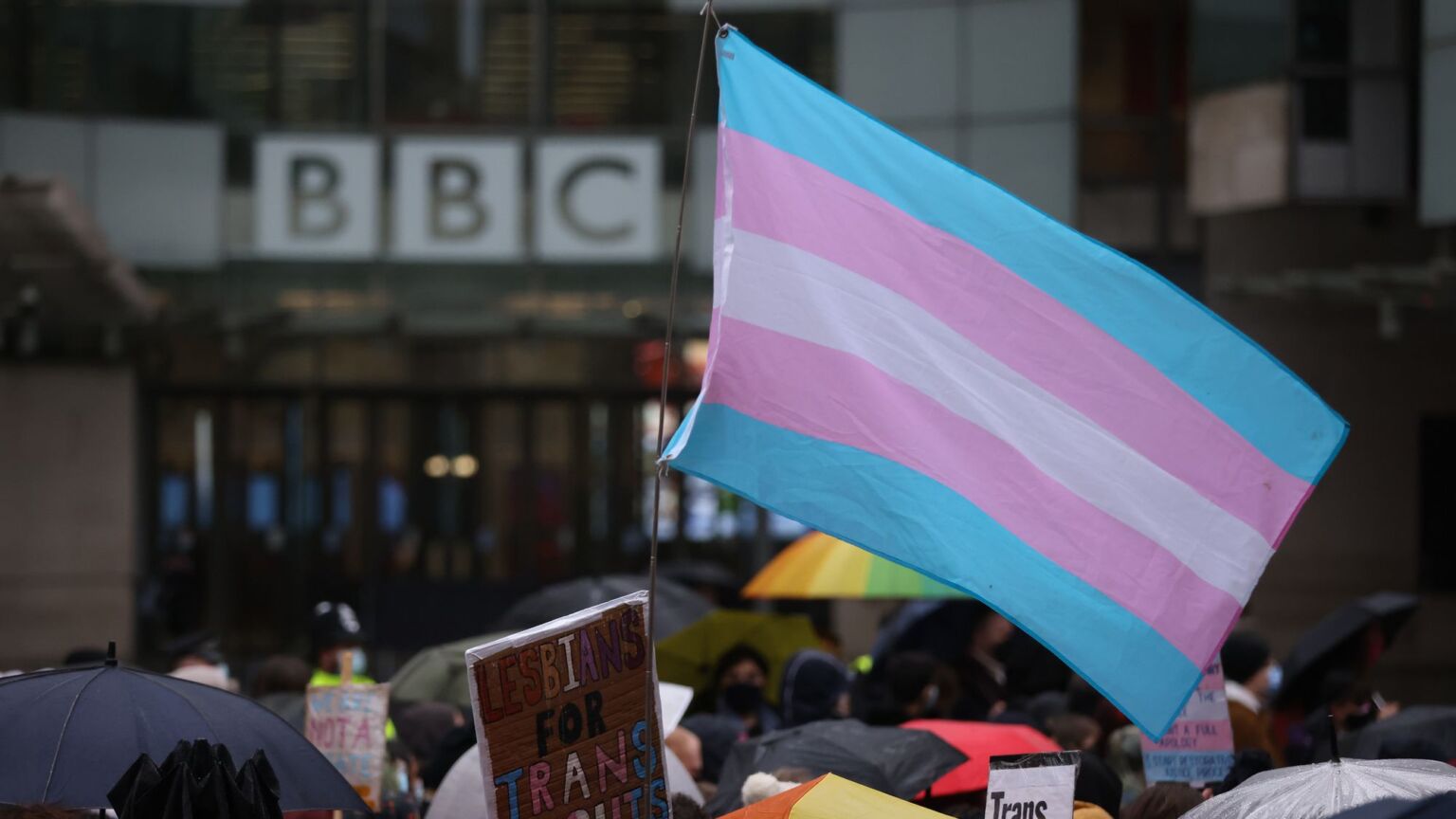The trans reckoning has arrived

The reckoning is finally arriving, echoing the dilemma in Eugene Genovese’s powerful essay, ‘The Question’. Writing in 1994, Genovese confessed that he and many others had remained loyal to the Soviet Union long after they knew about the mass killings and the gulags. ‘For many years’, he admitted, ‘I have lived in dread of having to answer The Question… “What did you know, and when did you know it?”’ Eventually, he acknowledged the uncomfortable truth: ‘We knew everything essential and knew it from the beginning.’ Many mainstream journalists will soon find themselves confronting the same question.
The sudden resignations this week of BBC director-general Tim Davie and CEO of news Deborah Turness has focussed minds on the role of the media. It has been startling – and grimly predictable – to watch senior figures at the BBC scrambling to defend their failures by muttering darkly about ‘right-wing conspiracies’ and ‘inside jobs’. Few, if any, have paused to consider whether the real problem might be their own cowardice.
The same rot runs through mainstream media across the world. In Ireland, I’ve met too many well-paid figures at RTÉ, the Irish Times and the Irish Independent who seem serenely proud of their refusal to touch anything remotely controversial. I call it Hugh Linehan syndrome, since, as duty editor of the Irish Times and host of the popular Inside Politics podcast, he appears to be particularly self-satisfied, even self-righteous, about his ability to avoid difficult issues.
I’ve thought a lot about how these individuals can so confidently defend their inaction. Most, when pressed, admit they knew everything all along and that, when it mattered most, their courage failed them. It raises the question of how long high-status professionals should serve a system they know is doing harm. How long before they find the courage to break ranks and refuse to comply?
The tide, it seems, is now beginning to turn. Many of us cheered when, in June, BBC newsreader Martine Croxall raised her eyebrows and exasperatedly corrected ‘pregnant people’ to ‘women’ in a live broadcast. Yet most of the comfortable professional class, particularly journalists, still can’t bring themselves to get involved.
Enjoying spiked?Why not make an instant, one-off donation?
We are funded by you. Thank you!
£5 £10 £20 £50
Choose an amountDonate now
Please wait...
Thank you!
This is the true disgrace. They know vulnerable children will be irreversibly damaged by experimental medical treatment. They know vulnerable women are sharing prison cells with male sex offenders. They know violent rapists are living in domestic-abuse shelters among the most vulnerable women and children. They also know honest and ethical professionals – like myself – are being mercilessly cancelled for shining a light on these issues.
The varying justifications used by journalists is a testament to their commitment to dishonesty. They moved from ‘this isn’t happening’ to ‘it’s happening but the numbers are tiny – why do you care?’ to ‘I find this offensive’. Then, after the irrefutable evidence of the Cass Review: ‘You’re right, we are where we are, I did my best during a difficult time.’
These weren’t a few mistakes. This was a sustained abdication of responsibility that justified the sterilisation of children, the positioning of men in women’s spaces and sports and the erasure of what it means to be lesbian or gay. Lives continue to be destroyed. Parents have been devastated, and detransitioners still cannot access appropriate care. We need a reckoning, not amnesia or post-hoc excuses.
Those of us who have been treated badly are furious. I’m a psychotherapist, a wife and a mother of two living in rural Ireland. I had no wish to become consumed by a medical scandal that the media refused to confront. All I needed was for journalists to do their job and the truth would have surfaced. They didn’t.
If academics, doctors and clinicians had done theirs, we wouldn’t have needed journalists to expose the scandal. But they didn’t meet their responsibilities and, above all, the journalists failed to report what was happening.
There is still a long way to go. If the mainstream media try to ride this out without real accountability, the anger and distrust will grow – not because we are too harsh, but because the media refuse to face their role in this scandal.
The reluctance to act is, at its core, a failure of courage – and when truth-telling is part of the job, a failure of ethics. This failure has infected academia, journalism, education, law and medicine, and created the wider crisis we face today.
A trans-Glasnost is dawning. The curtain of denial and intimidation is lifting. And Genovese’s question hangs in the air: what did you know, and when did you know it?
Stella O’Malley is the director and founder of Genspect.